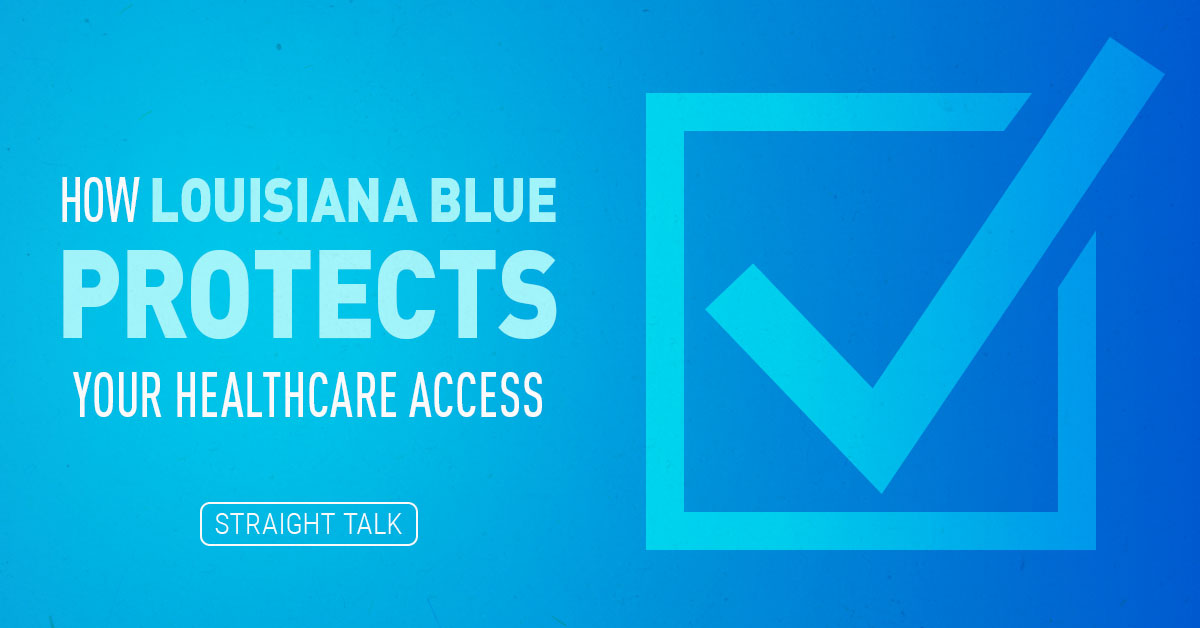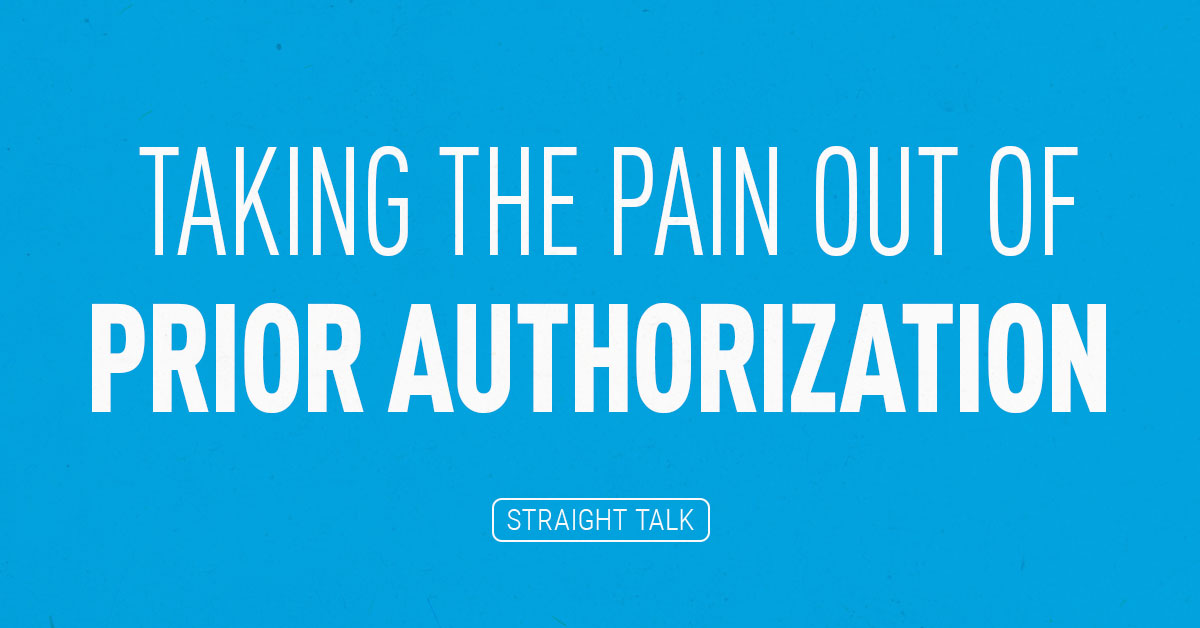Let me ask you a hypothetical question. Would you rather:
- Pay a $500 bill that you were totally expecting, or
- Pay a $300 bill that was a total surprise?
As the person who keeps track of bills and payments due for my family, I say there is NOTHING worse than a bill you weren’t expecting. No matter how much I owe, if I know about it up front, I can plan, estimate, maneuver, borrow or do whatever I have to do to pay that bill on time.
If I get ambushed, though… Grrrrr!!!! Don’t like it. Much more stressful.
Turns out that millions of our friends and neighbors, even ones who have high-quality health insurance, are getting ambushed with surprise bills from medical providers every day. Typically, this happens because they get care at an in-network hospital or clinic, but while there, get treated by a doctor or other provider, or have lab work done that’s out of network. The majority of the time, these bills are complete surprises and hit you weeks after you got care. Without any notice at all, without you being able to say “no.”
Well, Mike, how many of these surprise bills could there really be?
The latest research on this just blew my head off.
Kaiser Family Foundation says that 18.5% of all ER visits result in an unapproved or surprise medical bill. According to the federal Centers for Disease Control and Prevention (CDC), we as a nation had 145.6 MILLION ER visits last year.
So, let’s see… 145,600,000 x 0.185 = 26,936,000 bills — JUST FROM Emergency Rooms!
But that’s not all…
The Journal of the American Medical Association (JAMA) just finished a huge study that suggested 20.5% of ALL SURGERIES resulted in surprise bills. The good old CDC also points out that 48.3 MILLION surgeries were performed in the U.S. last year.
So, 48,300,000 x 0.205 = 9,901,500 MORE surprise bills in a typical year.
Is this unexpected billing by out-of-network providers a big problem? I’d say nearly 37 MILLION surprise bills per year, JUST from surgery and ER visits, is pretty big. Think about that.
That’s 37 million times a year Americans get a bill from a healthcare provider that they did not know was coming, for charges from providers they most likely didn’t KNOW were out of their networks because they got treated at an in-network facility or clinic. Thirty-seven million times in one year.
Is anybody doing anything about these unexpected or unapproved bills?
Following the example of state legislators in California and New York, the U.S. Congress is considering a couple of bills on this topic. It’s good that they are trying to protect consumers, but, as usual, Washington, D.C., can make things better for you or a LOT worse. There are two different approaches being considered.
The one that will have the lowest effects on your health insurance premiums is called “benchmarking.” It’s already in practice in California. The idea here is that when an out-of-network provider bills you unexpectedly, your insurance company pays that provider a previously agreed-upon percentage of what Medicare would have paid for your treatment OR pays the provider an average rate based on similar in-network providers in that area.
The beauty of this approach is that it can be totally automated, and these claims processed for a few pennies each. That’s critical, since we are talking about nearly 40 million events per year. This approach in California is working very well and has protected hundreds of thousands of consumers already. Not that the providers are happy about it. They would prefer a different solution.
The other proposed solution is “arbitration,” a fancy word that means a dispute is decided by an agency or lawyers or other involved parties. This is the method New York is using to resolve surprise billing, and significant cost increases have resulted.
Those increases are pushing up health insurance rates in New York. The average arbitration event has an administration fee of $400 per event. But providers who refuse to join insurance company networks get higher medical payments in arbitration, two or three times the in-network rate. That double whammy not only removes the incentive for providers to participate in affordable healthcare networks, it can really move your premiums upward.
Which solution protects you, the patient?
Naturally, providers are lobbying hard in D.C. to avoid benchmarking. They can make a lot more money from you and your insurance company via arbitration.
The problem is, with arbitrations, just the overhead costs to PROCESS them are staggering. Can you imagine? Nearly 40 million events per year at $400 each — that’s nearly $15 BILLION a year added to your health insurance premiums BEFORE insurers even pay the medical bill that the out-of-network provider generated? That’s just the OVERHEAD cost of the process!!
To get their way on this issue in Washington, several provider lobbying groups are funding huge amounts of advertising. I’ve heard a few of these ads, and they are embarrassing in their misrepresentation of the issue. These providers and facilities are essentially defending their right to bill you without your permission. How’s that make sense?
And this is no longer just a national problem. Louisiana’s legislature will be presented with “surprise billing” legislation this session. And guess which method the provider community will be pushing? To make it more interesting, the FEDERAL Bills being considered actually DEFER to state bills where they exist! In fact, the state of Georgia just passed surprise billing legislation that was written and passed by doctors in the legislature. On its surface, the bill looks like it lowers your out-of-pocket costs, but you and many other people will end up paying those surprise bill when they are turned into higher premiums. Very closely mirroring the New York model, I expect health insurance premiums in Georgia to start heading northward very soon. Bad news for you, my Straight Talk friends.
Straight Talk is, if we end up with a national or state-based ARBITRATION solution to surprise billing, we are essentially allowing the people who created this problem to solve it to their advantage and pass all the costs onto you via higher insurance premiums.
If you decide to contact your Congressional or State representatives about this issue, tell them you want BENCHMARKING, not ARBITRATION. That’s the best way to stop a quick rise in your health insurance premiums and potentially resolve the issue of the unexpected or unapproved surprise medical billing.





WHAT ARE THE SOLUTIONS FOR CONFUSION OF BILLING A GROSS (REALLY) SURGERY AMOUNT AND A NET AMOUNT FOR MEDICARE AND THE SUPPLEMENT AMOUNT. FOR EXAMPLE I RECEIVED A GROSS BILL FOR “SURGICAL SUPPLIES ” OF $1,400 WHEN ALL I GOT WAS TWO COTTON BALL IN MY NOSE WHEN I LEFT.
John!
By now, any hospital treating a Medicare patient should have this stuff down. Medicare A/B pays first (first 60 days in the hospital under Part A are covered after the deductible, $1,408 in 2020). Part B on physician charges after the $198 deductible. If you have a supplemental plan you’ve had for years, it should cover the deductibles and every legitimate Medicare-approved charge over what Medicare paid. If your supplement is brand new for 2020, you may have to pay some deductibles out of pocket, but the wrap-around supplement plan should handle most of your costs.
If the hospital charged me $1,400 for two cotton balls, I would contact the hospital and ask them to correct their mistake. If they failed to do that, might be worth making that fact a tad more public. I’ll leave that up to you!
But by way of example, in the last two years my Dad has had a spinal fusion (at age 80) and a double-bypass surgery (at age 82). He’s doing GREAT, back working in his garden, and so far his total out of pocket costs have been exactly $0. He has Medicare plus a supplemental plan he’s had for 20 years.
Hope that helps!….mrb
I had spinal surgery in a New Orleans hospital in April of 2017. One night stay. Hospital bill for that one night stay: $200,000!!!!!!!!!!!! The hospital was “in network”. But, if “out of network”, would they actually charge me $200,000? Guess I’d have to get an attorney and pay him/her to ask the hospital what their actual cost was for services rendered for that one day (medicare approved $22,000, so I guess the cost was around $11,000. Well, not really. Probably not more than $3,000). So, if their cost was even $11,000, that’s a $189,000 profit, which should be considered illegal price gouging. Bottom line: I have never purchased any product, service, etc without the vendor giving me the cost before receiving the product, service, etc.
Mike, took my wife to an in-network emergency room and paid her $350.00 ER copay. Later she gets a bill from the ER doctor stating that he’s not in-network and needs more than what her group insurance plan paid him. The insurance company paid him about $300. He wants over $600 more.
Do we have any recourse?
Dave
Dave! What you are describing is classic “ambush billing”. In an emergency situation ER docs should be happy with in-network payments, but as long as hospitals don’t require their docs to join the same networks as they do, this problem will persist.
I would look into two things: 1) Call the carrier and see if they will make the “in-network” payment; and 2) Call the ER docs office and ask them for that to be enough. and 3) Call the hospital and let them know how you feel about that, since ultimately they decide who they give the keys to their ER.
This may get you part of the way. We are working hard in DC on a solution to this “ambush billing” or you may hear it called “surprise billing” to get the patient out of the loop. More to follow on this.
Hang in there. Hope your wife is doing ok!….mrb
You neglect to state that if insurance companies paid a fair rate to providers then this issue would probably go away… Shame on you for being so one sided. Insurance companies are totally supporting this type of legislation because you have the most to gain by further degrading the ability for providers to be paid fairly for the work they provide. If all insurance paid at Medicare rates, then there are no more providers. They could not stay in business.
Kim! Thanks for weighing in.
Since we negotiate every network agreement with providers every few years, and those network membership are entirely voluntary, the evidence suggests that almost all medical providers in the state are operating successfully with the rates we currently pay providers. 100% of acute care hospitals in the state are in our networks. Almost all PCP’s and specialists have joined our networks. We pay significantly more than Medicaid and Medicare for health services and more than cover wholesale costs for the providers we contract with.
Imagine the confusion it creates when a few holdout docs see a patient in their “out of network” status while they are residing in an “in-network” hospital? Seems unfair to me.
We are certainly NOT in favor of any “surprise billing” solution that would significantly raise the health insurance rates of our members. Like binding arbitration, which, in the states it is already in use, raised everyone’s health insurance rates an average of 5%, just to satisfy a small minority of healthcare providers. And a huge proportion of that “raise” went to arbitrators, not to doctors or patients.
Remember, over 50% of our state’s residents now belong to a government-sponsored program like Medicare or Medicaid. That means we are in direct competition with Medicaid/Medicare for members when a new company gets insurance with us.
We work hard to pay a fair amount for the care that our members receive, and to protect them from payments that we’ve seen go as high as 30 times, yes THIRTY TIMES higher than Medicare pays. We would be remiss if we paid anyone that kind of money. Remember, as a not-for-profit, we are accountable to our members for every dollar they give us, because it is THEIR money, not ours.
Thanks for playing! Have a Great Day!…mrb
I’ve been a victim of surprise billing on several occasions. Recently, an ENT wanted to remove my grandson’s tonsils at a hospital facility. A couple of days before, the finance department called – the cost was $41,000. Even WITH insurance, they wanted $9,000 up front to cover the individual deductible and the patient responsibility %. (Insane, right?!) Then said the anesthesiologist and pathology bills weren’t included, and couldn’t give me an estimate because they may or may not be in-network. What? Wound up using a doctor with the ENT group that had surgery privileges at a Same Day Surgery Center and the entire out of pocket cost was $2500. No one offered that lower cost option. I had to ask and research myself. Def felt like they were trying to overcharge.
Does it REALLY have to be this hard? Why hasn’t someone developed an app to link insurance benefits to medical costs, you ask? Because it will pull the curtain back on positively criminal medical billing procedures.
Maria!
As a cancer survivor myself, I TOTALLY feel your frustration on trying to figure out ahead of time how much your healthcare treatments are going to cost. We are working VERY hard to bring transparency to as many medical procedures as humanly possible, and the tool that exposes those rates is called Smart Shopper. All you need is your Blue Cross card and this link: https://www.bcbsla.com/save-money/smartshopper and you can get a comparative price on hundreds of tests and procedures AHEAD OF TIME and compare them yourself. If you have coverage through an employer, they might even give you some of the savings BACK if you pick a lower cost provider.
I’m a big fan of Smart Shopper and use it all the time. It’s a great first step to medical pricing transparency and actually uses our IN NETWORK RATES, so you can see the “real” price based on your Blue Cross plan.
Give it a shot. Thanks!!…mrb
I had open heart surgery in April of 2019. I paid all of my deductible and out of pocket expenses. A year later, I get a bill for $1,400.00. I called to see what this was, because I knew I had already paid all of my out of pocket expenses. They said it was for the hospitalist doctor who saw me every day. There was a lady, I am assuming she was a doctor, who walked in my room each day to ask how I was doing. I had my surgeon, his assistants, my cardiologist and her assistants who came in and checked on me and made sure I was on the correct medicines, etc. every day. This doctor that sent this bill a year later never even touched me. They said that she was taking care of my chart and ordering meds, etc. That is a lie, because my other doctors were doing that. When I go into an in-network hospital, I assume that means that everything that is done in that hospital is in-network. Also, I did not approve this lady to come in to check on me every day. I did not need here. I was well taken care of by my doctors. Now I am having to fight them about the charge. I am 65 and single. I don’t make that kind of money. I also have other health conditions, so having this huge bill hit me a year later was really a shock.
Lynn!
You made a really brilliant quote here, I hope you don’t mind me repeating that:
“When I go into an in-network hospital, I assume that means that everything that is done in that hospital is in-network!”
Yes you do. And you SHOULD be able to do that. And when in network hospitals allow out of network docs to roam their halls, and care for patients without their knowledge, that’s where “Surprise Billing” comes from. As many as 40 MILLION surprise bills a year happen because of this practice. You should be safe from this, and that’s why we are working so hard to find a solution that does not drive up everyone’s health insurance rates for the benefit of a small minority of medical providers. I’m sorry that happened to you!
Thanks for your comments!…mrb
Mike, thanks for the dialog on this issue. It’s very touchy as you want the quality care the provider gives with the financial security your health plan offers. In my previous experience as a benefits administrator, current experience as a group broker and as a consumer of health care services with a wife with RA, I have found the following example to be a simple process which worked for my family in emergency room visits.
Upon arrival, we formally inform the hospital that all services must be rendered by In-Network service providers or those whom will accept In-Network reimbursements. In the ER intake process, we reitterate our requirement and instruct the intake staff to insert the demand into the record. Each provider that enters is asked if they are in-network or will accept in-network reimbursement. If not, we request a change. We have banned non in-network providers from providing services and have found in every instance the hospital provides an accomodation to our request. Post event, we review the EOB’s for billing outliers and contest any distortion.
My wife has been in the hospital several times with infections related to RA and this has worked each time with no suprise billings. Keep emotion out, stay firm and manage your and your families needs and suprise billings can be mitigated. If you set expectations with the hospital and its service providers at the beginning, the end results tend to be more conforming.
Glenn! Thanks so much for your comments!
It is a shame that you have to go to such lengths, but I completely understand why you do so, and I have been known to do the same thing myself. You are giving great advice under the current circumstance.
Even with the collected knowledge you and I have on this issue, I’ve been dinged with ambush bills myself occasionally. Can’t let your guard down for a minute, right?
Hang in there, and prayers all around for your wife’s condition!….
mrb
I recently took my son to a new pediatrician. I called beforehand and asked if there was an in house lab and was told yes. The doctor required that my son have lab work done. I get a surprise bill from later for almost $300 for “Hospital Services”. When I called about this, I was told that there are 2 divisions in the lab. One is “in house” and the other is considered “hospital”. I wrote the doctor and asked for help with this and still have gotten no response. What else can I do??
Stacie!
The latest in a LONG series of questionable medical billing practices is what I call the “hospital/outpatient switcheroo”. This is when a physician practice is owned or affiliated with a hospital system who spreads their costs around by adding a “hospital/lab” or “facility fee” to every bit of work they do. Often health insurance companies will NOT pay facility fees, and I consider them almost deceptive because the patient’s are almost never warned in advance about those fees. Certainly in your case, no one gave you the option to use the “in-house” or “hospital” lab OR explained the pricing difference between the two. I would try to get the Doctor on the phone and ask them directly about it, but the odds are the physician is not making that decision, it’s been made at an administrator level.
For future reference, you NEVER have to have lab work done at any particular lab. You can refuse labwork at your docs lab and use a different, in-network lab without all the facility fees. If you are a BCBSLA customer, check “Smart Saver” online for lab work pricing and you can see some of your options. Here’s a link: https://www.bcbsla.com/save-money/smartshopper
Sorry you got ambushed! You are in a VERY big club, I’m afraid.
thanks…mrb